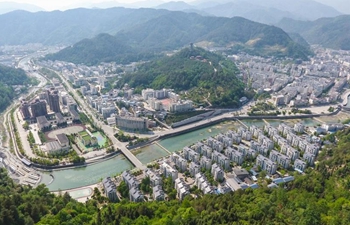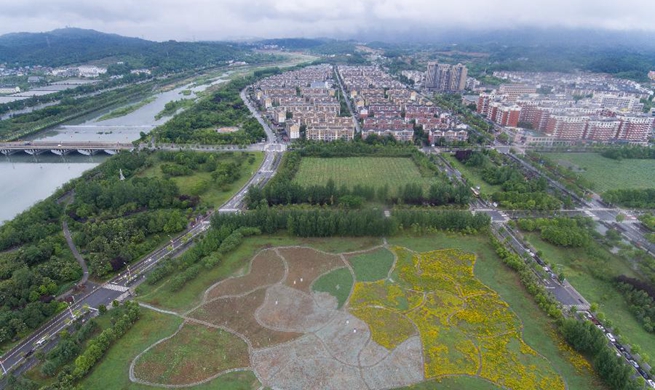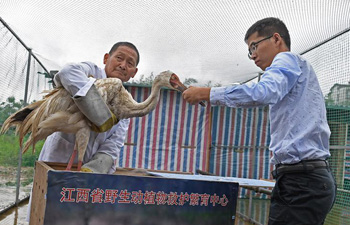BEIJING, May 11 (Xinhua) -- China's latest institutional reform is massive in scale, and its implementation has been swift.
In about two months, all but one of 32 new or restructured entities -- from ministries of the State Council to departments of the Communist Party of China (CPC) -- have started operating. Offices have opened, staff have been reshuffled and better public services have been launched.
Institutional reform was considered as early as 2015. The plan was eventually adopted at the third plenary session of the 19th CPC Central Committee in February.
Action began in late March with the release of the plan, touching upon a wide range of entities in the Party and state structure.
Since 1981, China has reformed the Party central departments four times, and the State Council structure seven times. But none has been comparable to the latest reform in its scale, depth, and shake-up of vested interests, an observer said.
The leadership has said the reform would "fundamentally" deal with institutional obstacles to reshape the Party and state structure to fit the long-term development needs of the Party and the state. The reform is seen to strengthen Party leadership, rule of law, natural resources management, environmental protection, market supervision, and cultural sector supervision.
All institutional changes need to be completed by the end of 2018 at the central and provincial levels, and most at the local level must be finished by March 2019.
Here is a look at some of the progress.
On April 10, the Ministry of Natural Resources was launched, absorbing eight former departments and tasked to better protect the ecosystem and manage natural resources.
On April 16, the Ministry of Emergency Management was formed. It is a "super ministry" taking over the functions of a whopping 13 departments and agencies. The ministry, mandated to protect life and property, has set up a 24-hour emergency response system to cope with natural disasters or major workplace accidents.
On the same day, the new Ministry of Veteran Affairs formally started operation. It will provide better service and protect the legal rights and interests of veterans to transform military service into one of the most dignified careers.
On April 20, the National Development and Reform Commission completed its "downsizing" exercise, trimming functions to focus on its main role in economic macro-management.
On the same day, the customs and quarantine offices were streamlined to cut procedures for checking parcels and travelers' carry-on luggage.
The leadership has demanded that there not be any massive job cuts. Employees whose positions have been cut should be assigned to new jobs, even if the process takes a while.
The State Immigration Administration, formed earlier in April, soon sprang into action. It has since announced simplified passport application procedures for Chinese citizens and waived visa requirements for tourists from 59 countries to visit the tropical island province of Hainan.
The administration was created to cope with China's fast-growing number of personnel exchanges. In 2017 alone, Chinese made 590 million trips abroad.
"The reform is intended to meet the people's ever-growing needs for a better life," said a senior immigration official.
The Ministry of Ecology and Environment, another new ministry, has begun a nationwide campaign to address water pollution in cities and fix sewage treatment facilities in towns.
Meanwhile, the national legislature has adopted a package of revisions to six laws to help them adapt to the demands of the reform.
Coordinated efforts are now being called for to advance the reform at central and local levels.
More changes are due to take place in the months to come as the reform continues.

















